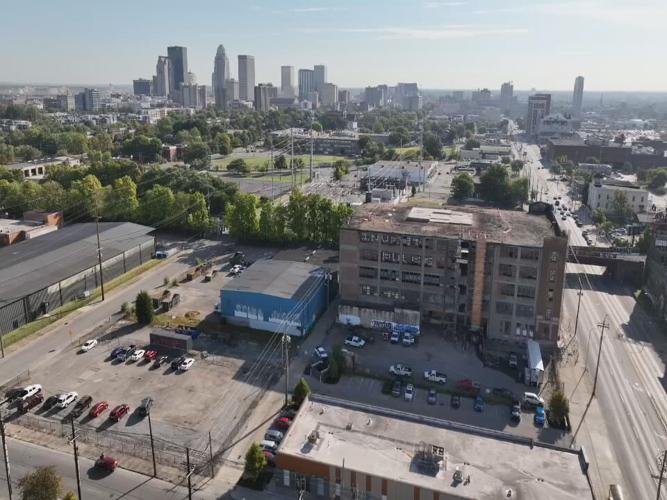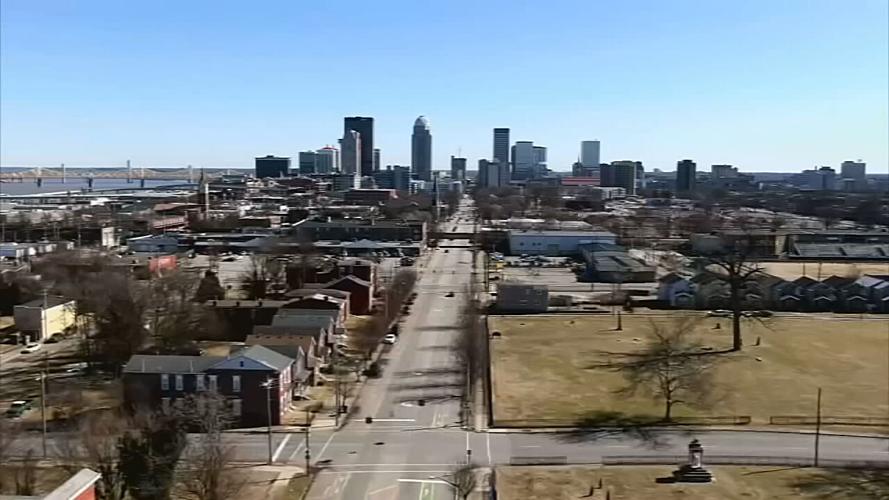LOUISVILLE, Ky. (WDRB) – A bill in the Kentucky legislature that targets elections, fire districts and other Louisville issues has a new wrinkle: It would ban local officials from changing city land-use rules for about a year.
The latest version of House Bill 388 advanced on Wednesday in Frankfort when it cleared the Senate’s state and local government committee. Among other things, it would make elections for Louisville’s mayor and Metro Council nonpartisan.
The bill now would place a moratorium on any changes to the Land Development Code, the main guide for land usage in Jefferson County. The freeze would take effect when the bill becomes law and last until April 15, 2025.
The legislation also would require Louisville Mayor Craig Greenberg to review the land code and "consider what changes" will give current and potential residents affordable housing while "ensuring that the financial investment of property owners and the quality of life for all is enhanced."
The mayor then would submit recommendations to legislative staff. It's unclear how they would be implemented.
The bill's changes come as Greenberg ramps up his push for more affordable housing in Louisville, including the possibility of “middle housing” -- duplexes and other multifamily units on land now zoned for single-family housing. A draft of new regulations for such housing was released this week.
The revisions surprised housing advocates who have worked for four years to reform the Land Development Code and in recent years on middle housing, said Tony Curtis, executive director of the Metropolitan Housing Coalition.
"I think we're handling it pretty good at the local level," he said in an interview Thursday evening. "We don't need any roadblocks to complete this process."
If the bill becomes law as written, "I think it stops the momentum. I think it worsens the crisis," he said.
The measure also coincides with the fledgling work of a newly formed Louisville Metro Council committee created to weigh changes to land use policies.
“I certainly hope that that amendment wasn’t added because of our committee,” Andrew Owen (D-9th District), the committee’s chair, told members during a meeting Thursday afternoon.
“If local land use issues are not local and are not decisions that should be made at the local level, and why the state has any prerogative to determine how we deal with those issues -- I don't know what is,” he said.
Owen called the potential moratorium “not a proper course of action.”
He told WDRB News in an interview that if the current version of HB 388 becomes law, “it basically puts everything on ice.”
Jeff O’Brien, executive director of Metro government's economic development cabinet, said city officials are reviewing the bill and aspects that “might be challenging.”
"There were some surprises in the amended version of House Bill 388," Greenberg's communications director, Scottie Ellis, said in a statement. "We are still advocating for some changes."
The bill’s chief sponsor, Republican state Rep. Jason Nemes of Louisville, did not immediately answer questions sent by text message on Thursday. But he told members of the Senate committee Wednesday that the moratorium is needed.
“We’re going to push the pause button for a moment and we’re going to see what should … the Land Development Code look like in Louisville to have appropriate development in appropriate places but not go too far -- but go far enough,” he said.
HB 388 includes recommendations from last year's sweeping review of Louisville Metro government and services provided countywide since the 2003 city-county merger.
That review commission met for months before issuing recommendations last September. Its final report does not recommend the moratorium now in the bill, but it does urge lawmakers to "enact an affordable housing tax credit to spur economic development of multi-family and single-family affordable housing."
Besides the elections changes, the bill also would create new payments for suburban Jefferson County fire departments for handling EMS runs outside their boundaries.
Other parts of HB 388 address how independent cities in Jefferson County can annex land — or be formed in the first place.
Legislators previously approved letting residents in unincorporated areas in the county create new cities of at least 6,000 people after July 15, 2024, if 66% of "qualified voters" living in the proposed city limits petition the Metro Council.
The sponsors of this year's bill want to change that threshold to "registered and qualified voters" equal to at least 60% of all votes cast in the last presidential election. Nemes has said the change is a result of people who no longer live in the area remaining on voter rolls.
The same threshold would be applied to people in unincorporated areas who want to be annexed by a neighboring city.
The bill also bans small cities from annexing manufacturing areas — like a Ford or UPS facility — just for gain its occupational tax revenue.
The bill now awaits action on the Senate floor.
This story may be updated.
Copyright 2024 WDRB Media. All rights reserved.





